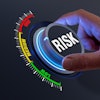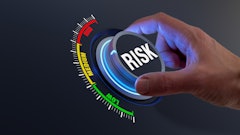Report shows some companies are champions of innovation, and others are established implementers, with no clear indication of who will be successful
Oyster Bay, NY — November 19, 2003 — Game theory describes the "winner's curse" as a winner's remorse after a favorable outcome. A similar fate may lie ahead for many radio frequency identification (RFID) vendors after finally achieving what they so long have wanted: Wal-Mart's push for RFID adoption.
This is a clear driver of primary demand for RFID — a long-standing goal for the dozens of companies marketing RFID readers, tags and software. Recent findings included in a study by technology market research firm ABI indicate that the rewards are high, with annual revenues set to break the $3 billion mark in just a few years.
Wal-Mart is not the only recent large-scale announcement in the RFID industry. Similar plans by the U.S. Department of Defense and UK-based retailer Tesco have given the RFID industry a further boost, confirming that this technology is not just a passing fad. However, even with such high-profile organizations radically boosting primary demand, the battle for secondary demand has yet to begin, according to recent research by ABI.
"Only companies that have the right blend of continued innovation and proven implementation will thrive in this market," explained Edward Rerisi, director of Research at ABI. "RFID vendors must understand the technology and the unique demands of each customer, which can take years to develop."
ABI's latest research on RFID indicates a slight dichotomy in the RFID space, as there are companies that are champions of innovation and those that are established implementers. Who will be successful is anyone's guess.
"Intermec, Texas Instruments, Tagsys and EM Micro have tens of millions of RFID tags in the field, serving to establish their presence in the market," said ABI Senior Analyst Erik Michielsen. "Recently, however, companies like Alien Technologies and Matrics are more synonymous with innovation, cementing their foundation in high-growth market segments."
A key finding of ABI's research is that not all RFID vendors will be ready to meet Wal-Mart's mandate of system accuracy, performance and scale in the short timeframe allotted.
ABI's report, "RFID: Emerging Applications Driving R&D Investment and End-User Demand," follows the technology for applications including asset management, supply chain management and point-of-sale. The study breaks down RFID standards, applications and vertical markets, and provides marketplace forecasts through 2008. Reader shipments and revenue are provided, as well as data on different RFID transponder and component markets. In addition, selected RFID vendors, integrators, developers and IC manufacturers are analyzed, along with their various technologies and product offerings.
Additional information on the RFID landscape can be found in an upcoming report from ABI, "RFID Vendor Assessment: Analysis of Major Players' Strategies, Positioning, and Technologies." This study examines the leading RFID companies and their ability to provide solutions required for Wal-Mart's RFID mandate.














![Pros To Know 2026 [color]](https://img.sdcexec.com/mindful/acbm/workspaces/default/uploads/2025/08/prostoknow-2026-color.mduFvhpgMk.png?ar=16%3A9&auto=format%2Ccompress&bg=fff&fill-color=fff&fit=fill&h=135&q=70&w=240)
